
In episode 255, Kestrel welcomes Mary Margaret Pettway, a fourth generation Gee’s Bend Quilter, and designer Greg Lauren, to the show. Mary Margaret and Greg have recently been part of a collaboration titled MOSAIC: Gee’s Bend & Greg Lauren.
“Quilting and sewing gives you a freedom that is totally different. You got a sense of pride in what you wear, what you like — and if you make it, it’s all the better.” -Mary Margaret
Gee’s Bend, Alabama is a rural community with deep historical roots connected to quilting. Emanating textile wisdom, the women of Gee’s Bend have created hundreds of masterpieces.
This week’s conversation is the fruit of a unique partnership between Gee’s Bend’s quilters and designer Greg Lauren. Before we get into more of what this entails, I want to share some words by Jonathan Michael Square, the curatorial partner for this collaboration, from a piece called “Beloved Patches of Orange”.
“The use of old clothing is a reminder of the resourcefulness and creativity of African Americans resulting from slavery. The genius of the Gee’s Bend quilters has had a transformative impact on how scholars and curators understand the diversity and complexity of African American creative expression and Black abstract expressionism borne out of the crucible of slavery. Within the fields of fiber and textile studies, the work of the Gee’s Bend quilters has been consistently referenced since the community started getting the attention that it deserved in the mid-20th century.
Ultimately, the collaboration between Gee’s Bend and Greg Lauren is a creative ping-pong match between a community of master needle workers and a purveyor of reworked American sportswear. Lauren, who is an artist first, uses his brand as a canvas to work out the complexity of American identity in the most radical ways. The collaboration is a conduit for shedding more light on this under acknowledged group of artists whose work is often relegated pejoratively to the realm of craft, despite sustained interest from scholars, curators, and collectors.”
On the show, we explore more on what an equitable collaboration means to Mary Margaret and Greg Lauren, and how they’ve intentionally built a model that can be replicated by / with others in the future.
Quotes & links from the conversation:
-
“Preloved is very much a word down here — we don’t understand the term deadstock. There is no such thing. If it can hold together, it can be used in a quilt. If it doesn’t shred in your hand, it can be used in a quilt, you know. It just depends on the person and their personal taste for doing things. Like I said, we grew up — if your zipper tore, we fixed it. If you had a hole in your pocket, we mended it. If your pants were too short, we lengthened it. If they were too long, we hemmed them. If you had a hole in your knee, we took our time, found a really old pair that were no good anywhere else, and we took time and we patched them. So, sustainability down here is just basically a way of life.” -Mary Margaret (27:46)
-
“Recycling and repurposing to me actually started with this idea that I used to speak about called recycling image. I wanted to change the way we saw clothing and wanted to change the way we saw archetypes and what those pieces of clothing meant.” -Greg (40:35)
-
“Around 2018, I started to look more specifically at this idea of Americana — and I say that because I was exposed to the word Americana and all the visual references of Americana really as this, almost a stylistic symbol of something that was completely vague and half-told. And I had this creative idea of — well, so we’ll reinterpret quilts. I had never used quilts before, but quilts to me were something that were so symbolic of an idea of Americana, an idea of America. Usually, such a small part of the story was actually told. And that started to bother me, because I literally was guilty of exploring red and white quilts, blue and white quilts. I put that into Google and I just started seeing all these quilts that I had seen so often as representative of Americana … later in 2020, it was the first time there were some transformative conversations and deep dive into the history of some of our aesthetics, that I discovered Gee’s Bend. And I literally saw a few quilts — specifically a couple by Mary Lee Bendolph and Annie Mae Young … and what started with seeing the work clothes quilts that so many people may not — I certainly didn’t realize — were such a huge part of the history of Gee’s Bend quilters … And I thought — well, thank you very much to the history and legacy of Gee’s Bend, because without that, there’s no way any of us working today work with scraps and remnants, and we’re all so proud of our initiatives, but that doesn’t exist without the work that came before us. And while it’s great to now bring it now to the forefront of what we’re doing as creatives, we’ve gotta credit the story and embrace the legacy and history of it.” -Greg (41:55)
-
“Mary Margaret said something very profound when we were together in Los Angels. She said that, you know, people have been taking from Gee’s Bend for a long, long time. That they come down, spend time together, buy a quilt, and then they’re never heard from again. And then, they go and sell it for so much more money somewhere down the road. And, we wanted to just create a different model where the women whose artwork is being celebrated and that is what these garments are made of — that they would have an opportunity to participate in the financial success of the project as well." -Greg (1:02:15)
-
Jonathan Michael Square, curatorial partner for MOSAIC & author of "Beloved Patches Of Orange"
-
MOSAIC: Gee’s Bend x Greg Lauren
-
Nest x Gee’s Bend
-
Souls Grown Deep
-
Follow Gee’s Bend Quilters on Instagram >
-
Follow Greg Lauren on Instagram >
More Episodes
Eric Liedtke of UNLESS on pressing fashion to ditch the plastic ingredients and ideating on what it will take for corporations to truly change
 2023-09-05
2023-09-05
A new era of storytelling at Conscious Chatter, meet our newest team member Natalie Shehata & what slow media means for us in practice
 2023-08-15
2023-08-15
Jessie Frances (@cappuccinosandconsignment) on the complications with resale's *moment* — fast fashion addictions becoming secondhand addictions, luxury's obsession with exclusivity & the gentrification of thrifting
 2023-07-18
2023-07-18
Winona Quigley of Green Matters Natural Dye Company on reimagining what *scale* means for natural dyeing & how accessibility and limits also play into the idea of *growth*
 2023-07-11
2023-07-11
Scientist Dr. Lisa Erdle of 5 Gyres on what we know about microfiber shedding from clothing & the solutions can make an impact
 2023-07-04
2023-07-04
Liz Spencer of Dogwood Dyer on growing organic natural dye gardens to coax color from plants & acknowledging the cultural origins of dyestuffs along the way
 2023-06-20
2023-06-20
Researcher Anjana Baburaj on the pervasiveness of Shein & the ways in which social media and the drive to increase social status are directly fueling the overconsumption of clothing
 2023-06-13
2023-06-13
Lizz Leral of Quilting For Community on the links between quilting and mental health, and how accessing the flow state via hand-oriented activities can help unlock answers to life's questions
 2023-06-06
2023-06-06
Kelly Drennan of Fashion Takes Action on the importance of youth education that centers fashion's impact on people + the planet
 2023-05-23
2023-05-23
Rayouf Alhumedhi, creator of the hijab emoji, on examining Gen Z's shopping behavior & highlighting why product designers should rethink existing product before designing new
 2023-05-16
2023-05-16
Jeff Garner of Prophetik on how synthetic fabrics & toxic chemicals connected to our clothing are impacting our health
 2023-05-02
2023-05-02
Jenna & Jon of Revival Eyewear on what makes deadstock vintage eyewear superior in quality & how conglomerate Luxottica has created a monopoly-like hold on today's glasses industry
 2023-04-11
2023-04-11
Denica Riadini-Flesch of SukkhaCitta on rediscovering Indigenous regenerative farming and dyeing techniques & challenging the status quo
 2023-04-04
2023-04-04
Abby Mills (aka @abbyontheinternet) on the de-influencing *trend* & questioning whether this movement can help us combat overconsumption
 2023-03-21
2023-03-21
Samata Pattinson, the CEO of RCGD Global on their Sustainable Style Guide, how it's being distributed to all attendees of Academy events this Oscar® season & the power of generative conversations
 2023-03-12
2023-03-12
Amy Powney of Mother Of Pearl on the new documentary *Fashion Reimagined* and the need to reconnect to the people, the land & the process behind our clothes
 2023-03-07
2023-03-07
Trish Langman of Sovereignty on the need for comprehensive fashion education from childhood and beyond, to help collectively shift awareness about how our clothes are made
 2023-02-28
2023-02-28
Sage Paul of Indigenous Fashion Arts on why thinking sustainably is innately an Indigenous cultural practice & why we must see Indigenous designers on a global stage
 2023-02-21
2023-02-21
Doen's Director Of Impact Kristine Kim on their 2030 Roadmap & the importance of welcoming discomfort when navigating value chain impact work
 2023-02-14
2023-02-14
Kelly Lottahall on making art out of old clothes and bringing the fashion & art worlds together to tell stories about *waste culture*
 2023-02-07
2023-02-07
Create your
podcast in
minutes
- Full-featured podcast site
- Unlimited storage and bandwidth
- Comprehensive podcast stats
- Distribute to Apple Podcasts, Spotify, and more
- Make money with your podcast
It is Free
You may also like
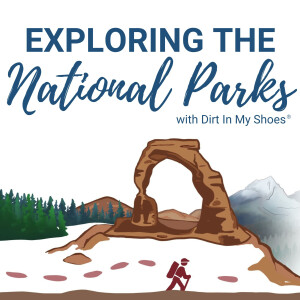
Exploring the National Parks

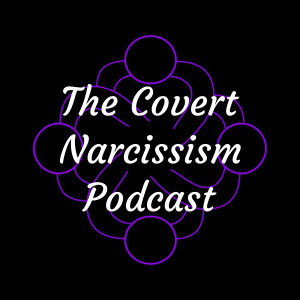
The Covert Narcissism Podcast


Greece Travel Secrets Podcast

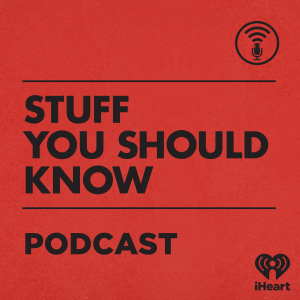
Stuff You Should Know

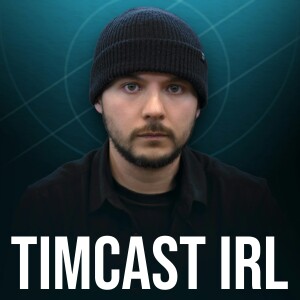
Timcast IRL


- Privacy Policy
- Cookie Policy
- Terms of Use
- Consent Preferences
- Copyright © 2015-2024 Podbean.com

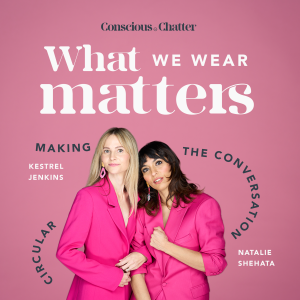

 iOS
iOS Android
Android